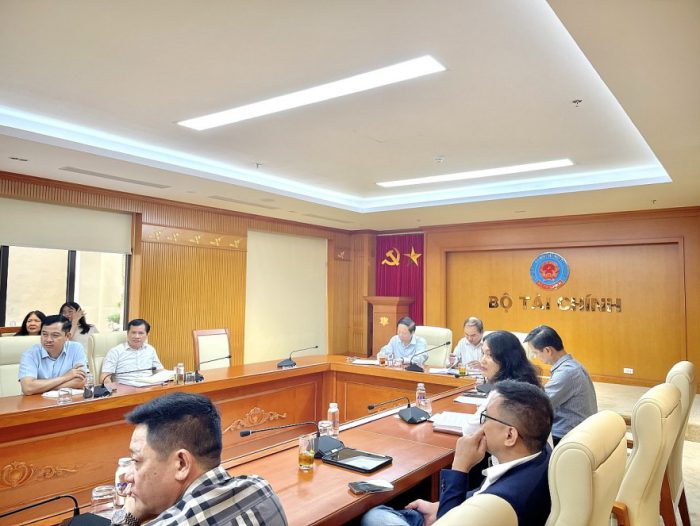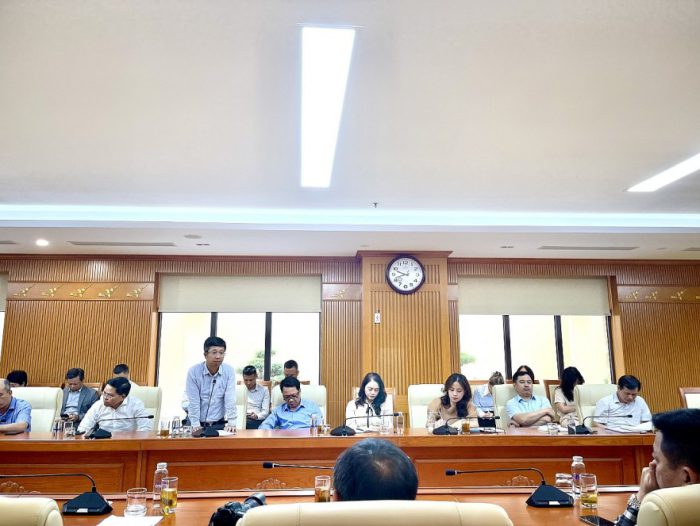20/05/2025
Non-life Insurance Sector Embraces New Policies, Aims to Surpass VND 80 Trillion in Revenue
(TBTCO) – On May 20, at the Ministry of Finance headquarters, the Insurance Supervision and Management Authority (ISMA) held a working session with non-life insurance companies, reinsurance companies, and foreign non-life insurance branches to discuss solutions for developing the non-life insurance market.
Reviewing the growth performance of the non-life insurance market, Mr. Pham Van Duc – Deputy Director of ISMA – stated that total direct premium revenue in 2024 increased by 10.21%, and the first five months of 2025 are estimated to have grown by 10.43% year-on-year.
Rollout of New Regulatory Policies
During the meeting, ISMA leaders provided updates on the development of new legal documents related to the non-life insurance sector. They called for close collaboration from insurance firms to ensure that newly issued policies are practical, feasible, and quickly applicable in real-world contexts.
For example, Decree No. 105/2025/ND-CP dated May 15, 2025, guiding the implementation of the Law on Fire Prevention, Fighting, and Rescue, will take effect on July 1, 2025. It stipulates that insurers must contribute 2% of the actual premiums collected from compulsory fire and explosion insurance policies in the previous fiscal year.
Each year, insurers are required to deposit this amount into the account of the Department of Fire Prevention, Fighting, and Rescue Police.

ISMA also announced the removal of a regulation that allowed insurers to adjust premiums by up to 25% based on the insured object’s risk level when the total insured value is under VND 1,000 billion.
Circular No. 219/2010/TT-BTC dated December 30, 2010, which guides the criteria for identifying reputable insurers in the maritime sector, is expected to be revised and reissued by October 2025. Notably, the charter capital requirement will be raised from VND 300 billion to at least VND 400 billion, along with enhanced solvency margin requirements.
Additional forthcoming regulations include Decree No. 104/2025/ND-CP dated May 15, 2025, detailing certain provisions of the Notarization Law; a revised decree on agricultural insurance slated for submission to the Government in May 2026; and updates to the list of public assets that must be insured.
At the meeting, Mr. Pham Van Duc emphasized that ISMA will continue to streamline administrative procedures while promoting decentralization and delegation of authority. ISMA is reviewing and eliminating four administrative procedures under its jurisdiction and proposing to delegate seven others to accelerate processing times for enterprises.
ISMA also urged insurers to enhance their risk management and internal control frameworks. Companies must increase both regular and ad-hoc assessments of legal compliance as stipulated in Circular No. 70/2022/TT-BTC dated November 16, 2022. Special attention should be given to reinsurance operations, underwriting, claims assessment, and the qualifications of executives and control officers.
In parallel, insurers are encouraged to accelerate digital transformation in internal management, underwriting, claims handling, data analytics for risk management, and product pricing.
Insurance companies actively contributed ideas and recommendations to accelerate industry development. Suggestions included adjusting health insurance reserve requirements to align more closely with operational realities.

For compulsory fire and explosion insurance, companies called for a more balanced approach that benefits both customers and insurers. Regarding agricultural insurance, firms proposed increasing premium subsidies to improve accessibility and risk-sharing.
Participants also highlighted the importance of reviewing regulations on corporate bond investments aimed at debt restructuring. Furthermore, some firms recommended ramping up public awareness campaigns to rebuild trust in the insurance sector.
At the session, insurers broadly agreed with ISMA’s directives and committed to implementing measures that strike a balance between growth, financial safety, risk governance, and legal compliance.
ISMA acknowledged all proposals and emphasized the need to focus on the effective rollout of compulsory insurance products, the development of new insurance offerings, enhanced reinsurance practices, investment and technical reserves management, and improvements to the policy framework—based on feedback from insurance companies and the Vietnam Insurance Association.
